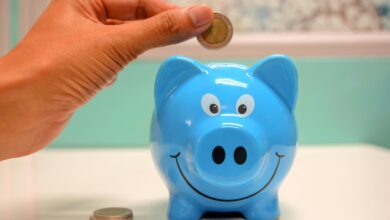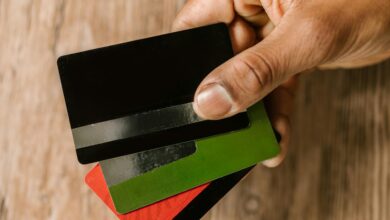How to Pay Off Debt Quickly and Efficiently: A Comprehensive Guide

Debt can feel like a heavy burden, weighing down your financial freedom and causing stress. Whether it’s credit card debt, student loans, medical bills, or personal loans, the journey to becoming debt-free is not always easy. However, with the right strategies, discipline, and mindset, you can pay off your debt quickly and efficiently. In this article, we’ll explore actionable steps, proven methods, and tips to help you take control of your finances and achieve your debt-free goals.
Understanding Your Debt
Before diving into repayment strategies, it’s essential to understand exactly what you owe. Many people avoid looking at their debt because it feels overwhelming, but facing the reality is the first step toward financial freedom.
1. Create a Detailed Debt Inventory
- List All Debts: Write down every debt you have, including the creditor, total balance, interest rate, minimum monthly payment, and due date.
- Organize by Priority: Sort your debts based on interest rates (highest to lowest) or balances (smallest to largest). This will help you decide which debts to tackle first.
2. Calculate Your Debt-to-Income Ratio
Your debt-to-income ratio (DTI) is the percentage of your monthly income that goes toward paying off debt. To calculate it:
- Add up all your monthly debt payments.
- Divide the total by your gross monthly income.
- Multiply by 100 to get the percentage.
A DTI above 40% indicates that you may need to prioritize debt repayment more aggressively.
Strategies for Paying Off Debt Quickly
There are several proven methods to pay off debt efficiently. The key is to choose one that aligns with your financial situation and personality. Below are two popular approaches:
1. The Snowball Method
The snowball method focuses on paying off smaller debts first while making minimum payments on larger ones. Once the smallest debt is paid off, you move on to the next smallest, creating a “snowball” effect.
How It Works:
- List your debts from smallest to largest balance.
- Pay as much as possible toward the smallest debt while maintaining minimum payments on others.
- After eliminating the smallest debt, roll the amount you were paying into the next smallest debt.
Pros:
- Provides quick wins, boosting motivation.
- Simple and easy to follow.
Cons:
- May cost more in interest if higher-interest debts are ignored.
2. The Avalanche Method
The avalanche method prioritizes debts with the highest interest rates first, minimizing the total amount of interest paid over time.
How It Works:
- List your debts from highest to lowest interest rate.
- Pay as much as possible toward the highest-interest debt while maintaining minimum payments on others.
- Once the highest-interest debt is paid off, move to the next highest.
Pros:
- Saves money on interest in the long run.
- Mathematically optimal for reducing overall debt costs.
Cons:
- Progress may feel slower if high-interest debts have large balances.
Boosting Your Debt Repayment Efforts
While choosing a repayment strategy is crucial, accelerating your progress requires additional effort. Here are some tips to maximize your debt payoff:
1. Increase Your Income
Finding ways to earn extra money can significantly speed up your debt repayment. Consider these options:
- Side Hustles: Freelancing, tutoring, or gig economy jobs like driving for Uber or delivering food.
- Sell Unused Items: Declutter your home and sell items online through platforms like eBay or Facebook Marketplace.
- Ask for a Raise: If you’ve been excelling at work, negotiate a salary increase.
2. Cut Expenses
Reducing your spending frees up more money to put toward your debt. Try these cost-cutting measures:
- Track Your Spending: Use budgeting apps like Mint or YNAB to identify areas where you can cut back.
- Cancel Subscriptions: Eliminate non-essential services like streaming platforms or gym memberships.
- Cook at Home: Eating out less frequently can save hundreds of dollars each month.
3. Use Windfalls Wisely
Whenever you receive unexpected money—such as tax refunds, bonuses, or gifts—allocate it directly toward your debt instead of spending it elsewhere.
Avoiding Common Pitfalls
Paying off debt requires discipline, but there are common mistakes that can derail your progress. Be mindful of the following:
1. Ignoring Emergency Savings
While focusing on debt repayment, don’t neglect building an emergency fund. Without savings, unexpected expenses could force you to borrow more, undoing your hard work.
2. Taking on New Debt
Avoid using credit cards or taking out new loans while repaying existing debt. This only adds to your financial burden.
3. Failing to Adjust Your Budget
As your income or expenses change, update your budget accordingly to ensure you’re consistently allocating enough toward debt repayment.
Staying Motivated Throughout the Process
Paying off debt is a marathon, not a sprint. Staying motivated is critical to maintaining momentum. Here’s how to keep yourself inspired:
1. Set Clear Goals
Define why becoming debt-free matters to you. Is it to reduce stress? Save for a house? Travel? Having a clear purpose will keep you focused.
2. Celebrate Milestones
Reward yourself when you hit significant milestones, such as paying off a specific debt or reaching a certain percentage of your goal. Just make sure the rewards are affordable!
3. Join a Support Group
Consider joining online communities or local groups focused on debt repayment. Sharing experiences and advice with others in similar situations can provide encouragement and accountability.
When to Seek Professional Help
If your debt feels unmanageable despite your best efforts, professional assistance might be necessary. Options include:
1. Credit Counseling
Nonprofit credit counseling agencies can help you create a budget, negotiate lower interest rates, and consolidate your debts into a single payment plan.
2. Debt Settlement
This involves negotiating with creditors to pay less than the full amount owed. While it can reduce your debt, it may also harm your credit score.
3. Bankruptcy
As a last resort, filing for bankruptcy can discharge certain debts. However, it has severe consequences for your credit and should only be considered after consulting with a lawyer.




